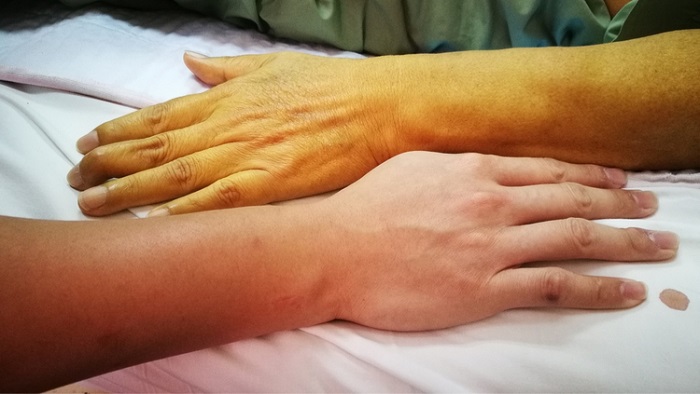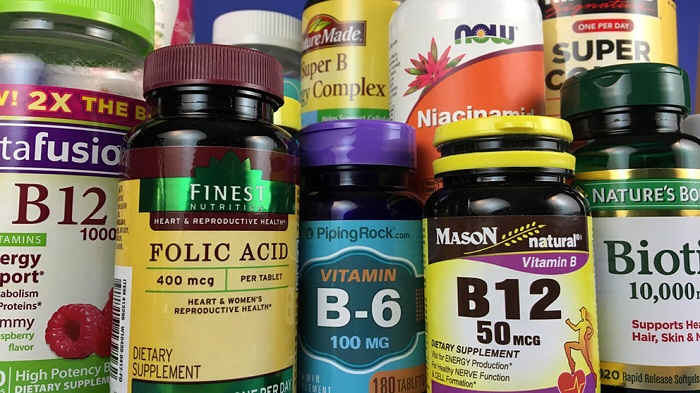9 Pale-colored skin
Advertisement
A lack of vitamin B-12 can manifest as jaundice, a condition characterized by pale or yellow skin. When the body is unable to manufacture enough red blood cells, jaundice can develop. The typical hue of the skin comes from the red blood cells that circulate beneath it. Your skin may appear paler if you don’t have enough of these cells.
Red blood cell formation is dependent on vitamin B-12. Megaloblastic anemia, or a loss of red blood cells, is associated with jaundice in people deficient in vitamin B12. Red blood cells are weakened by this type of anemia and break down more quickly in the body as a result. This bilirubin is produced by the liver when red blood cells are degraded. The brownish pigment bilirubin gives jaundice its characteristic yellow hue.

Img Src: bidophar.com
10 Mouth pain
Advertisement
Oral health is also affected by vitamin B-12 deficiency. As a result, you may experience oral health issues like:
- Glossitis- a condition that causes the tongue to become red and swollen
- Mouth sores
- A bad taste in your tongue
A lack of vitamin B-12 results in a drop in red blood cell synthesis, reducing oxygen delivery to the tongue, causing these symptoms.

Img Src: dictio.id
11 Cognitive difficulties
Advertisement
Cognitive impairment is the medical term for a vitamin B-12 deficiency that affects one’s ability to think clearly. Problems with thinking or reasoning, as well as memory loss, are among the symptoms. According to a single investigation, Alzheimer’s, vascular dementia, and Parkinson’s disease are all connected to low vitamin B-12 levels. The lack of oxygen to the brain may be to blame for the inability to think or reason clearly.

Img Src: endocrineweb.com
Treatments for vitamin-B12 deficiency
Advertisement
Dietary sources of vitamin B-12 are sufficient for the majority of people. A doctor may prescribe or recommend B-12 supplements to patients who are unable to obtain them naturally. B-12 supplements can also be purchased at pharmacies or online from various manufacturers.
Vitamin B-12 is found in most multivitamins. Oral tablets, sublingual tablets that dissolve under the tongue, and injections are all options for getting B-12 vitamins into your system. However, a doctor can only determine the correct dosage of this vitamin for you.
Vitamin B-12 injections may be necessary for those who have difficulty absorbing the vitamin. Depending on your diet and overall health, you can consult your doctor for advice on treating and preventing vitamin B-12 deficiency.

Img Src: accademia5t.it